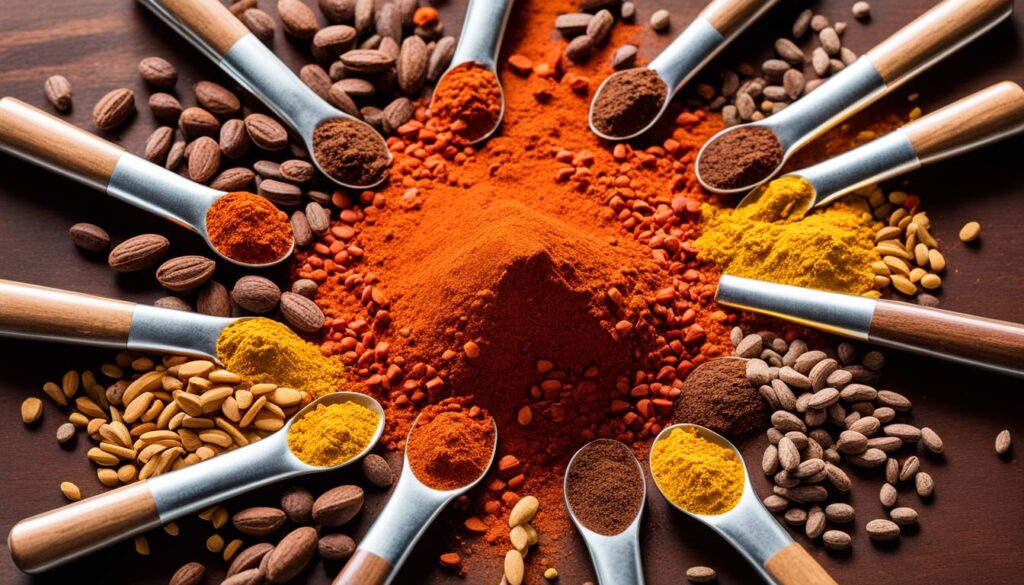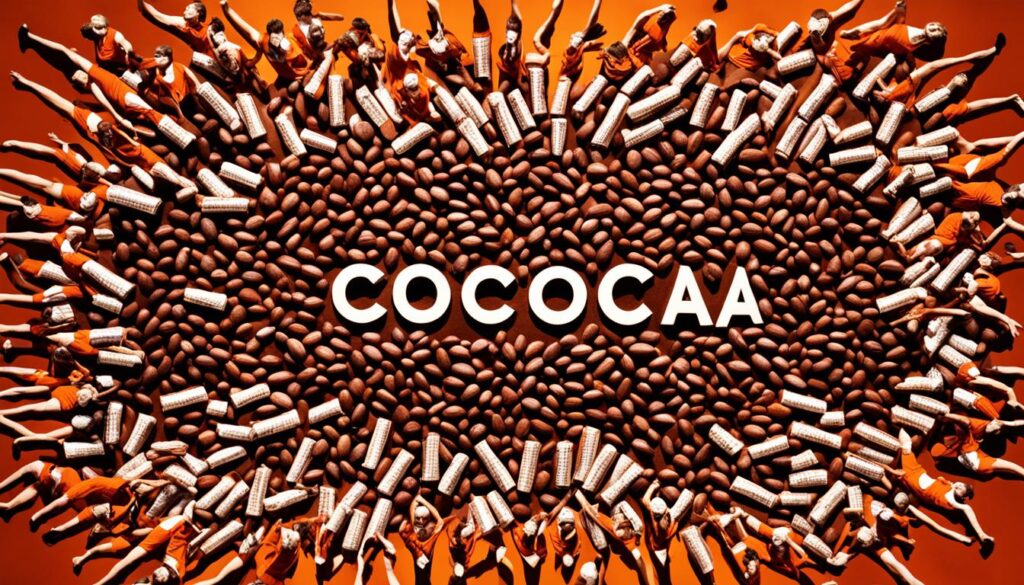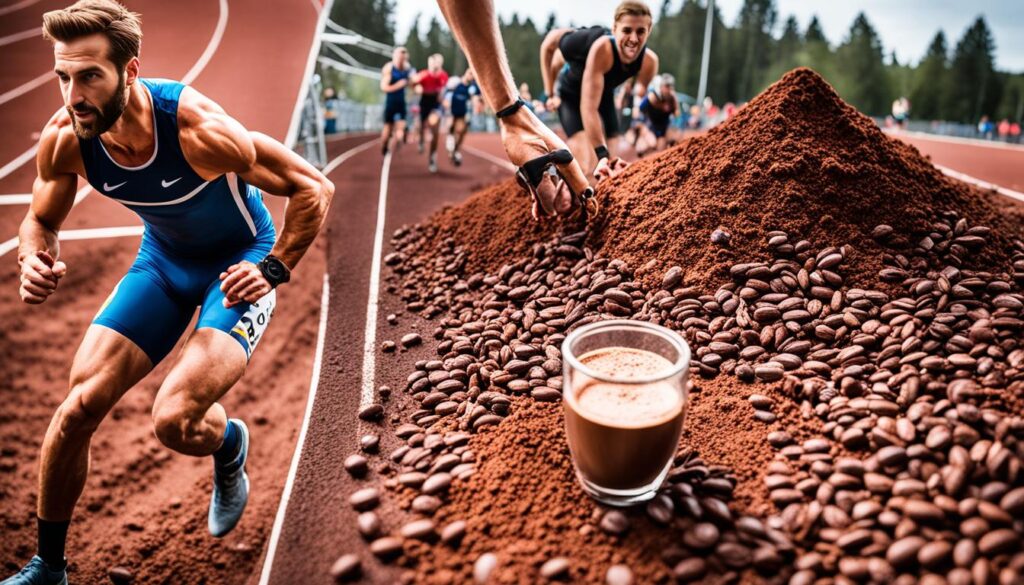As athletes constantly seek ways to enhance their physical capabilities and competitive edge, the spotlight has turned to the potential benefits of cocoa consumption. Cocoa, the key ingredient in chocolate, has long been touted for its health-promoting properties, but its impact on athletic performance is a topic that deserves a closer examination. So, how exactly can cocoa, a humble culinary delight, influence the realm of sports and exercise?
This article delves into the intriguing relationship between cocoa consumption and athletic performance, exploring the potential benefits it may offer for endurance, muscle recovery, strength, and even cognitive function. We’ll also discuss the optimal dosage and timing of cocoa intake, as well as any potential side effects or precautions that athletes should be aware of. By the end of this exploration, you’ll have a comprehensive understanding of how this ancient superfood can be integrated into an athlete’s diet and the advantages it may offer across a variety of sports.
Key Takeaways
- Cocoa consumption may enhance endurance performance by improving cardiovascular health and oxygen utilization.
- The antioxidant and anti-inflammatory properties of cocoa can aid in muscle recovery and potentially increase strength and power.
- Cocoa’s rich antioxidant content may help combat exercise-induced oxidative stress, mitigating fatigue and enhancing overall athletic performance.
- Optimal dosage and timing of cocoa intake, as well as potential side effects, should be considered by athletes.
- Cocoa can be integrated into an athlete’s diet through various means, including dark chocolate, cocoa powder, and cocoa-based supplements and sports drinks.
Introduction to Cocoa and Athletic Performance
Cocoa, the key ingredient in chocolate, has long been celebrated for its rich flavor and potential health benefits. However, emerging research suggests that cocoa may also hold significant promise for athletes seeking to enhance their performance. This section explores the fascinating world of cocoa and its potential impact on various aspects of athletic endeavors.
What is Cocoa?
Cocoa, derived from the seeds of the Theobroma cacao tree, is a complex and nutrient-dense food source. It is renowned for its high concentration of flavanols, methylxanthines (such as caffeine and theobromine), and a wide range of antioxidants. These compounds contribute to cocoa’s unique flavor profile and have been the subject of extensive scientific investigation for their potential health benefits.
The Potential Benefits of Cocoa for Athletes
As athletes strive to push the boundaries of their physical and mental capabilities, the potential advantages offered by cocoa have garnered increasing attention. The antioxidant properties of cocoa may help combat exercise-induced oxidative stress, potentially reducing muscle fatigue and enhancing recovery. Additionally, the flavanols in cocoa have been linked to improved cardiovascular health and enhanced oxygen utilization, both of which can contribute to enhanced endurance and overall athletic performance.
Furthermore, the methylxanthines in cocoa, such as caffeine and theobromine, have been shown to positively influence cognitive performance, potentially offering athletes a mental edge during competition or training. These findings suggest that the strategic incorporation of cocoa into an athlete’s diet and supplement regimen may unlock a wealth of benefits for athletic performance.
As we delve deeper into the relationship between cocoa and athletic performance, the potential for this versatile ingredient to become a valuable tool in the athlete’s arsenal becomes increasingly apparent. The subsequent sections will explore the specific ways in which cocoa can influence various aspects of physical and mental prowess, providing a comprehensive understanding of its role in optimizing athletic performance.
Cocoa and Endurance Performance

As athletes strive to enhance their endurance and push the boundaries of their physical limits, the potential benefits of cocoa consumption have captured the attention of the sports community. Emerging research suggests that the unique blend of compounds found in cocoa may play a pivotal role in supporting cardiovascular health and optimizing oxygen utilization, both of which are crucial factors for endurance performance.
Effects on Cardiovascular Health
One of the primary ways in which cocoa can impact endurance performance is through its influence on cardiovascular health. The flavanols and other bioactive compounds in cocoa have been shown to improve blood flow, reduce blood pressure, and enhance the heart’s ability to efficiently pump blood throughout the body. This enhanced cardiovascular function can have a significant impact on an athlete’s ability to sustain prolonged physical activity, as the heart and circulatory system are better equipped to meet the increased oxygen and nutrient demands of the working muscles.
Impact on Oxygen Utilization
In addition to its cardiovascular benefits, cocoa has also been found to positively influence the body’s ability to absorb and utilize oxygen during exercise. The antioxidant properties of cocoa can help mitigate the oxidative stress associated with endurance training, potentially improving the efficiency of oxygen uptake and utilization. This enhanced oxygen utilization can translate into improved endurance and increased exercise capacity, as athletes are better able to meet the oxygen demands of their working muscles.
| Benefit | Mechanism | Impact on Endurance Performance |
|---|---|---|
| Improved Cardiovascular Health | Increased blood flow, reduced blood pressure, enhanced heart function | Improved oxygen and nutrient delivery to working muscles, sustained physical activity |
| Enhanced Oxygen Utilization | Increased antioxidant capacity, improved oxygen uptake and utilization | Increased exercise capacity, improved endurance |
Cocoa and Muscle Performance

The remarkable compounds found in cocoa, such as flavanols and antioxidants, have gained significant attention for their potential impact on muscle performance and recovery. Numerous studies have explored the role of cocoa in this crucial aspect of athletic endeavors.
Role in Muscle Recovery
One of the key benefits of cocoa consumption for athletes is its ability to aid in muscle recovery. The antioxidant and anti-inflammatory properties of cocoa have been shown to help reduce muscle damage and soreness, facilitating the repair and regeneration of muscle tissue. By mitigating the harmful effects of exercise-induced oxidative stress, cocoa can accelerate the recovery process, allowing athletes to bounce back more quickly and perform at their best during subsequent training sessions or competitions.
Potential for Increased Strength and Power
In addition to its role in muscle recovery, research suggests that cocoa may also have the potential to increase strength and power output. Cocoa’s influence on factors such as muscle protein synthesis and neuromuscular function may contribute to enhanced muscular performance. This could be particularly beneficial for strength-based athletes or those engaging in power-dependent sports, as they strive to maximize their physical capabilities.
The interplay between cocoa’s multifaceted effects on muscle performance and recovery underscores its compelling potential for athletes seeking to optimize their training and competition results. By incorporating cocoa into their nutritional regimen, athletes may be able to unlock new levels of muscular endurance, strength, and overall athletic prowess.
Antioxidant Properties of Cocoa

Cocoa, the key ingredient in chocolate, is renowned for its impressive array of antioxidants, including flavanols, polyphenols, and methylxanthines. These powerful compounds play a crucial role in combating the exercise-induced oxidative stress that athletes often experience during intense physical activity.
During exercise, the body produces an abundance of free radicals and reactive oxygen species, which can lead to oxidative stress, muscle fatigue, and inflammation. This oxidative stress can impair athletic performance, recovery, and overall well-being. However, the antioxidants found in cocoa can help neutralize these harmful free radicals, reducing the negative impact of oxidative stress on the body.
Studies have shown that regular cocoa consumption, whether through dark chocolate or cocoa-based supplements, can significantly enhance the body’s ability to withstand and recover from the rigors of exercise. The antioxidants in cocoa have been linked to improved cardiovascular function, reduced muscle damage, and accelerated recovery, all of which can contribute to enhanced athletic performance.
By incorporating cocoa into their diet, athletes can leverage its potent antioxidant properties to combat the negative effects of exercise-induced oxidative stress, ultimately supporting their overall health, recovery, and athletic potential.
How Does Cocoa Consumption Affect Athletic Performance?

As athletes strive to enhance their physical capabilities, the role of cocoa consumption has emerged as a topic of growing interest. Numerous studies have explored the potential benefits of incorporating cocoa into an athlete’s diet, revealing its multifaceted impact on athletic performance.
Optimal Dosage and Timing
The optimal dosage and timing of cocoa intake for athletes is an area that has received considerable attention. Research suggests that consuming cocoa, either in the form of dark chocolate or cocoa powder, at specific intervals can maximize its benefits. For instance, a study published in the Journal of the International Society of Sports Nutrition found that consuming cocoa 30 minutes prior to exercise can enhance endurance performance by improving oxygen utilization and blood flow to the muscles.
The ideal dosage of cocoa for athletes can vary depending on factors such as body weight, activity level, and individual response. Generally, studies have reported positive effects with the consumption of 20-30 grams of dark chocolate or 10-15 grams of cocoa powder per day, either before or after a workout. It is essential for athletes to experiment and find the optimal dosage that provides the desired performance benefits without causing any adverse side effects.
Potential Side Effects and Precautions
While cocoa consumption has been shown to offer numerous benefits for athletes, it is crucial to be mindful of potential side effects and precautions. Excessive intake of cocoa, particularly in the form of high-sugar chocolate, can lead to gastrointestinal issues, such as bloating, abdominal discomfort, or diarrhea. Additionally, the caffeine and theobromine content in cocoa may cause jitteriness, increased heart rate, or disruptions to sleep patterns if consumed in large quantities, especially close to bedtime.
Athletes with pre-existing conditions, such as hypertension or heart disease, should consult with their healthcare providers before incorporating cocoa into their diet, as the stimulant effects may interact with certain medications or exacerbate existing medical conditions. It is crucial to find the right balance and timing of cocoa consumption to reap the potential benefits while avoiding any adverse effects.
Cocoa and Sports Nutrition

As athletes strive to optimize their performance, the role of cocoa in sports nutrition has gained significant attention. Cocoa, with its unique blend of beneficial compounds, offers a promising avenue for enhancing various aspects of athletic endeavors.
Integrating Cocoa into an Athlete’s Diet
Incorporating cocoa into an athlete’s diet can be achieved through various means. Dark chocolate, with its high cocoa content, can be a delightful way to reap the benefits of this superfood. Athletes can also opt for cocoa powder, which can be easily integrated into smoothies, baked goods, or even savory dishes. Cocoa-based beverages, such as hot chocolate or sports drinks, can provide a convenient and refreshing source of cocoa during training and competition.
Cocoa-Based Supplements and Sports Drinks
The growing demand for cocoa-infused products has led to the development of a range of cocoa supplements and sports drinks specifically tailored for athletes. These innovative offerings leverage the unique properties of cocoa, such as its ability to enhance cardiovascular health, improve oxygen utilization, and aid in muscle recovery. Athletes seeking to optimize their performance can explore these specialized cocoa-based supplements and sports drinks as part of their comprehensive nutrition plan.
By integrating cocoa into their diet and exploring the growing market of cocoa-based supplements and sports drinks, athletes can unlock the potential benefits of this versatile superfood and elevate their sports nutrition regimen.
Cocoa and Different Sports

As athletes strive to maximize their performance, the versatility of cocoa has become increasingly recognized across various sports and disciplines. From endurance-based activities to strength and power-focused events, the potential benefits of cocoa consumption can have a significant impact on athletic success.
Benefits for Endurance Athletes
For endurance athletes, such as long-distance runners, cyclists, and triathletes, the consumption of cocoa can provide a distinct advantage. The improved blood flow and enhanced oxygen utilization associated with cocoa intake can help boost cardiovascular performance, allowing endurance athletes to maintain a higher intensity for longer periods. Additionally, the moderate amounts of caffeine in cocoa offer a natural energy boost, which can be particularly beneficial during extended endurance events.
Advantages for Strength and Power Athletes
Strength and power athletes, including weightlifters, sprinters, and explosive team sport players, can also benefit from the incorporation of cocoa into their diets. The antioxidant properties of cocoa can help reduce inflammation and oxidative stress, which are common challenges faced by these athletes during intense training and competition. Moreover, the compounds in cocoa can aid in muscle recovery and adaptation, with its high magnesium content supporting muscle relaxation and its flavanols facilitating nutrient delivery for muscle repair.
Integrating cocoa into the diets of athletes from various sports can provide a multifaceted approach to enhancing performance, from improved endurance and cardiovascular health to enhanced muscle recovery and neuromuscular function. By leveraging the unique benefits of this versatile food, athletes can optimize their training, recovery, and overall athletic performance.
Age and Gender Considerations
When it comes to the effects of cocoa consumption on athletic performance, it’s important to consider potential age and gender-related differences. Research has shown that the benefits of cocoa may be influenced by an individual’s age and gender, and adjustments in dosage or timing may be necessary to optimize the impact.
Older athletes, for instance, may experience enhanced cardiovascular benefits from cocoa consumption, as the flavanols in cocoa have been linked to improved blood flow and reduced blood pressure. Studies have found that older individuals may derive greater cardiovascular advantages from cocoa intake, potentially helping to offset age-related declines in cardiovascular function. On the other hand, younger athletes may see more pronounced improvements in muscle recovery and neuromuscular function from cocoa.
Similarly, gender-based variations in the response to cocoa consumption have been observed. Some research suggests that women may experience more substantial benefits in terms of skin health and antioxidant status, while men may see greater improvements in endurance and strength performance. This could be due to differences in hormone levels, body composition, and other physiological factors that influence how the body metabolizes and responds to the compounds in cocoa.
Ultimately, the optimal cocoa intake for athletes of different ages and genders may vary, and it’s important for individuals to pay attention to their own responses and adjust their consumption accordingly. By understanding these nuances, athletes can maximize the potential benefits of cocoa and tailor their intake to their specific needs and goals.

Leave a Reply